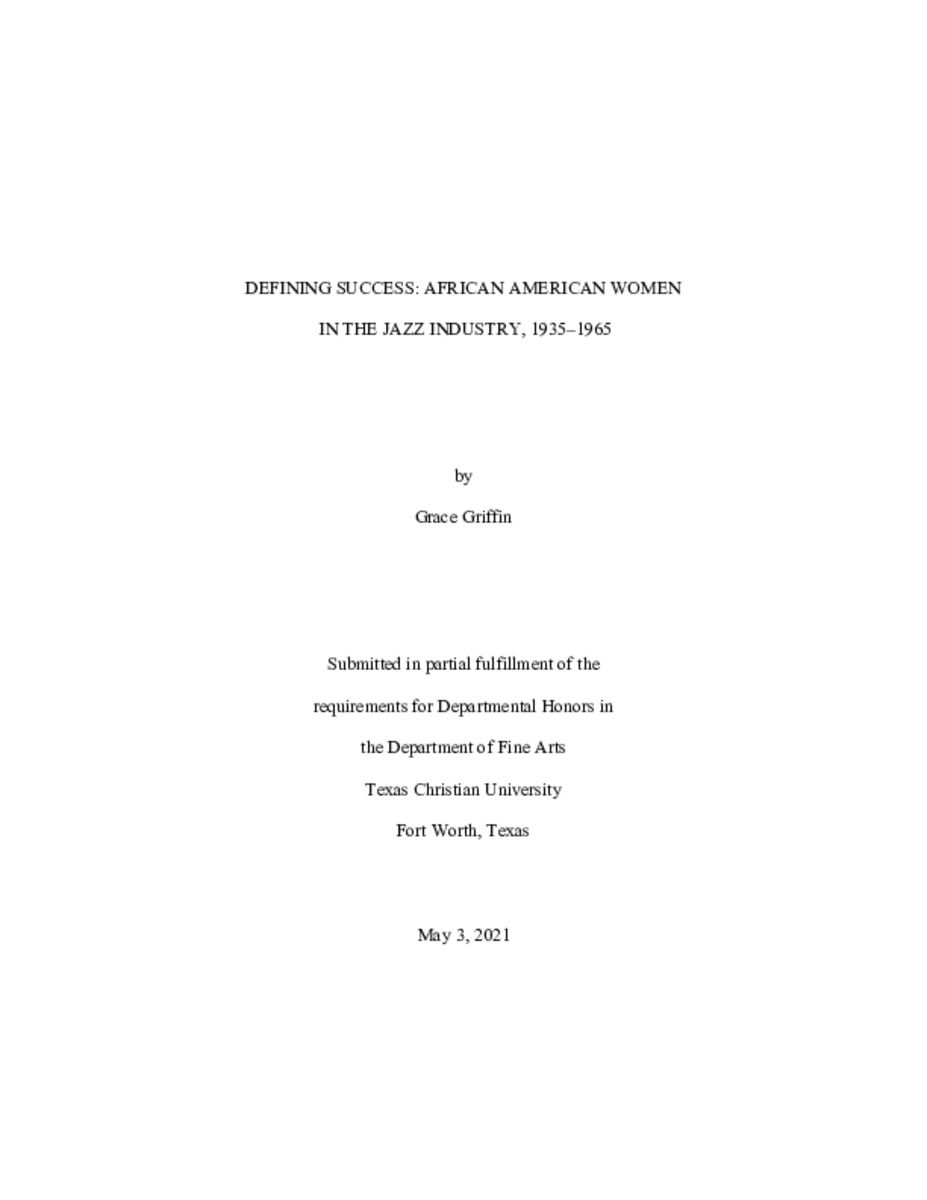Defining Success: African American Women in the Jazz Industry, 1935-1965Show full item record
| Title | Defining Success: African American Women in the Jazz Industry, 1935-1965 |
|---|---|
| Author | Griffin, Grace |
| Date | 2021 |
| Abstract | The present study evaluates how female jazz musicians challenged patriarchal notions of "success" in mid-twentieth century America. "Success" historically has been defined from a white male viewpoint, based around economic position and masulinity. Although the genre of jazz stems from African American musical traditions born out of cultural hardship, it matured under the umbrella of the popular music industry, which was grounded in traditional - in other words, male-coded - perceptions of success. However, if we broaden our lens to encompass women's stories - particularly African American women's stories - we can see how jazz musicians like Billie Holiday, Ella Fitzgerald, and Nina Simone used their powerful voices to advocate for racial and gender equality during a time of intense civil unrest. For them, their talent and their songs reached millions of listeners to speak their truths to a nation divided over race and women's rights. This thesis begins with a cursory overview of success as traditionally defined in the United States. The body of this project analyzes how this framework affected Black female artists' musical contributions as well as gender and racial identities from approximately 1935 to 1965. Their voices live on today and remind us of the importance of diversity, equity, and inclusion - ideals we are still fighting for in the twenty-first century. |
| Link | https://repository.tcu.edu/handle/116099117/49114 |
| Department | Music |
| Advisor | Bombola, Gina |
| Additional Date(s) | 2021-05-19 |
Files in this item
This item appears in the following Collection(s)
- Undergraduate Honors Papers [1463]
© TCU Library 2015 | Contact Special Collections |
HTML Sitemap



